
Water Economics and Policy
Scope & Guideline
Unlocking the Potential of Water through Economic Insights
Introduction
Aims and Scopes
- Water Resource Management:
The journal emphasizes the economic aspects of managing water resources, including the allocation, pricing, and sustainability of water use across different sectors. - Economic Impact Assessments:
It frequently publishes research evaluating the economic impacts of water policies, environmental changes, and resource management strategies, aimed at informing better decision-making. - Water-Energy Nexus:
Exploring the interconnections between water and energy use, the journal contributes to understanding how these resources interact and the implications for policy and management. - Transboundary Water Issues:
The journal addresses the challenges of managing water resources that cross political boundaries, focusing on cooperative management strategies and conflict resolution. - Climate Change Adaptation:
Research on the economic implications of climate change on water resources is a core area, including adaptation strategies and resilience building within communities. - Public-Private Partnerships (PPP) in Water Services:
The journal explores the role of PPPs in enhancing water service delivery, focusing on governance, investment strategies, and operational efficiencies. - Water Quality and Pollution Management:
It publishes studies related to water quality issues, including the economic evaluation of pollution control measures and the benefits of ecosystem services.
Trending and Emerging
- Water-Energy Nexus Studies:
Research focusing on the interdependencies between water and energy resources is increasingly prominent, emphasizing the need for integrated management strategies in the face of resource scarcity. - Climate Change and Water Resilience:
There is a growing body of work on the economic implications of climate change on water resources, focusing on adaptation strategies and resilience-building for vulnerable communities. - Innovative Financing Mechanisms:
Emerging themes include the exploration of new financing models for water projects, including green bonds and impact investing, reflecting a trend towards sustainable development funding. - Behavioral Economics in Water Policy:
Studies applying behavioral economics to understand consumer behavior related to water usage and conservation are on the rise, indicating a shift towards more psychologically informed policy-making. - Ecosystem Services Valuation:
An increasing number of papers focus on the economic valuation of ecosystem services provided by water bodies, highlighting their importance in sustainable water management practices. - Digital Water Management Technologies:
Research on the impact of digital technologies and data analytics in water management is gaining traction, exploring how innovations can enhance efficiency and service delivery.
Declining or Waning
- Traditional Irrigation Economics:
Research specifically centered on conventional irrigation practices has decreased, as the focus has shifted towards more sustainable and innovative approaches to water management. - Simple Water Pricing Models:
There has been less emphasis on basic water pricing models that do not account for complex socio-economic factors, as the field moves towards more integrative and dynamic pricing strategies. - Static Water Resource Allocation Studies:
Studies that apply static models to water resource allocation are waning, with increasing preference for dynamic, adaptive models that consider changing environmental conditions and human behavior. - Historical Water Policy Review:
While historical analyses of water policies have been significant, recent publications indicate a trend towards contemporary evaluations and forward-looking policy frameworks. - Generalized Water Quality Assessments:
The journal has seen a decline in generalized assessments of water quality, with a shift towards more localized and context-specific studies that address particular challenges faced by communities.
Similar Journals
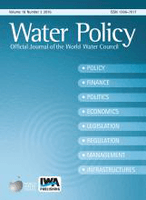
Water Policy
Innovating water management through research and dialogue.Water Policy is a leading academic journal published by IWA PUBLISHING, dedicated to advancing the understanding of water management and policy across various disciplines. With a focus on the intricacies of water governance, the journal fosters dialogue among researchers and practitioners by presenting innovative studies and comprehensive analyses. Since transitioning to an Open Access model in 2021, it has increased accessibility to critical research, allowing for a broader reach and greater impact within the water sector. The journal's reputation is underscored by its classification in Q2 and Q3 quartiles in fields such as Geography, Planning and Development, as well as Environmental Science disciplines, marking it as a valuable resource for scholars and policymakers alike. The ISSN 1366-7017 and E-ISSN 1996-9759 facilitate streamlined access to its extensive archive, encouraging wider engagement in pivotal discussions surrounding sustainable water practices. With a commitment to shaping the future of water governance, Water Policy stands as an essential platform for sharing vital research and perspectives that contribute to effective water management globally.
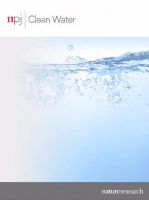
npj Clean Water
Championing global collaboration for water quality.npj Clean Water, published by NATURE PORTFOLIO, is a premier open-access journal dedicated to advancing the field of water science and technology. Since its launch in 2018, this innovative publication has quickly established itself as a leading platform for original research and policy discussions concerning clean water access and quality. With an impressive impact factor and categorized in the Q1 Quartile across multiple environmental science disciplines—including management, monitoring, pollution, and waste management—npj Clean Water stands out for its rigorous peer-review process and commitment to disseminating high-quality research. Researchers, professionals, and students involved in water-related challenges will find invaluable insights that address critical environmental issues and promote sustainable practices. Access to articles is freely available, encouraging global collaboration and knowledge sharing within the water sector. This journal embodies a significant step towards achieving innovation and policy advancements in the pursuit of a cleaner, safer water future.

Journal AWWA
Empowering Researchers and Professionals to Tackle Water Quality Issues.Journal AWWA, published by WILEY, serves as a vital platform in the fields of Chemistry and Water Science and Technology. Established in 1946 and with a rich history extending to 2024, this journal is dedicated to the dissemination of innovative research and practical insights that address the pressing challenges associated with water quality and management. Although currently not an open-access publication, it provides important contributions to a diverse audience, including researchers, industry professionals, and students dedicated to advancing knowledge in water sciences. With a respectable Q3 ranking in both the Chemistry and Water Science categories, as well as competitive Scopus rankings, Journal AWWA consistently delivers peer-reviewed articles that foster critical discussions and promote sustainable solutions within the community. The journal's commitment to excellence ensures that it remains a significant resource for those engaged in environmental science and technology.
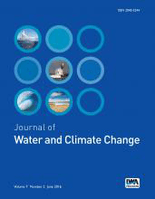
Journal of Water and Climate Change
Empowering Sustainable Solutions for a Changing ClimateJournal of Water and Climate Change is a premier open-access journal published by IWA Publishing, dedicated to advancing the understanding of the interplay between water resources and climate change. With an ISSN of 2040-2244 and an E-ISSN of 2408-9354, this journal has established itself as a crucial platform for interdisciplinary research, publishing high-quality articles that address the challenges posed by climate variability on water systems globally. Since achieving open access status in 2021, the journal has fostered wider dissemination of knowledge among its audience, featuring works that span pivotal topics in Atmospheric Science, Global and Planetary Change, and Water Management. Notably ranked within the top quartiles in several relevant categories as of 2023, it occupies a vital position in the academic community, offering insights that are essential for policymakers, environmental scientists, and researchers striving to create sustainable solutions for water and climate challenges. Its commitment to excellence is reflected in its strong Scopus rankings, standing at the 66th percentile in Water Science and Technology and 65th percentile in Management, Monitoring, Policy, and Law. Located in the United Kingdom, this journal not only serves as a repository of cutting-edge research from 2010 to 2024 but also engages a diverse readership passionate about promoting sustainable water management practices.

ENVIRONMENTAL REVIEWS
Bridging Research and Real-World SolutionsENVIRONMENTAL REVIEWS, published by Canadian Science Publishing, is a leading academic journal dedicated to the field of Environmental Science. With an impressive 2023 Q1 ranking in Environmental Science (miscellaneous) and a Scopus rank of #30 out of 233, it reflects the journal's substantial influence and contribution to the discourse on environmental issues. Launched in 1993, this journal provides a platform for critical reviews and innovative research in areas ranging from ecological sustainability to environmental policy, ensuring that it remains at the forefront of scientific inquiry. Although it currently does not offer open access, ENVIRONMENTAL REVIEWS continues to cater to a diverse readership of researchers, professionals, and students, fostering knowledge exchange essential for tackling contemporary environmental challenges. This journal not only strives to disseminate crucial findings but also aims to inspire informed decision-making and practical solutions to promote ecological welfare.
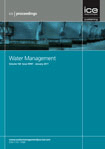
PROCEEDINGS OF THE INSTITUTION OF CIVIL ENGINEERS-WATER MANAGEMENT
Transforming Water Management through Peer-Reviewed InsightsPROCEEDINGS OF THE INSTITUTION OF CIVIL ENGINEERS-WATER MANAGEMENT is a prestigious journal published by Emerald Group Publishing Ltd, dedicated to advancing the field of water management within civil engineering. With an ISSN of 1741-7589 and an E-ISSN of 1751-7729, this journal delivers peer-reviewed research that spans the critical intersections of water science and technology, contributing valuable insights into sustainable water management practices. As evidenced by its ranking in the 2023 Scopus categories, where it holds the Q3 quartile in Water Science and Technology, and a respectable position among its peers, the journal remains a vital resource for researchers, professionals, and students in the field. Though it is not an open-access journal, it offers accessible subscription options that facilitate worldwide dissemination of knowledge, enhancing its role as a fundamental reference point for cutting-edge developments in water management. For those looking to publish or stay updated on the latest research trends, this journal serves as an essential platform for promoting innovation and sustainable practices in civil engineering and water resources management.
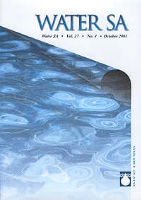
WATER SA
Illuminating solutions to global water challenges.WATER SA, published by the WATER RESEARCH COMMISSION, serves as a pivotal platform for interdisciplinary research in the areas of water science and technology. With an ISSN of 0378-4738 and an E-ISSN of 1816-7950, this open-access journal has been committed to disseminating knowledge since 2005, ensuring that research is freely accessible to a global audience. As of 2023, it holds a Q3 ranking in several key categories including Applied Microbiology and Biotechnology, Management, Monitoring, Policy and Law, Waste Management and Disposal, and Water Science and Technology. These rankings reflect its significant contribution to these disciplines, particularly in South Africa where it is based. With a history dating back to 1976 and converging research efforts extending through 2024, WATER SA aims to illuminate pressing water-related challenges and foster innovative solutions through rigorous scientific inquiry. Researchers, professionals, and students interested in the sustainability and management of water resources will find its comprehensive portfolio essential for advancing their work and understanding in an increasingly critical field.
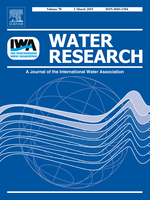
WATER RESEARCH
Pioneering research at the intersection of water and technology.WATER RESEARCH, published by Pergamon-Elsevier Science Ltd, is a premier international journal dedicated to the advancement of knowledge in the interdisciplinary field of water science and technology. With a significant impact factor, WATER RESEARCH holds a distinguished position, consistently ranking in the top quartile (Q1) across multiple categories including Civil and Structural Engineering, Environmental Engineering, and Pollution. Established in 1967 and set to continue its legacy until at least 2024, this journal provides a vital platform for researchers and professionals to disseminate cutting-edge findings related to water sustainability, quality, and management. Although the journal follows a traditional access model, its commitment to disseminating impactful research ensures that it remains an essential resource for academia and industry alike. With a rigorous selection process, the journal includes articles that significantly contribute to the understanding and resolution of global water-related challenges, making it an invaluable asset for researchers, students, and practitioners engaged in this critical area of study.
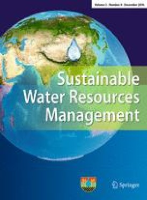
Sustainable Water Resources Management
Driving impactful practices for sustainable water resources.Sustainable Water Resources Management is an esteemed journal focusing on the critical field of water resource management in the context of sustainability. Published by Springer International Publishing AG, this journal serves as a vital platform for researchers, policymakers, and practitioners to disseminate cutting-edge research and innovative practices aimed at addressing global water challenges. With an impressive impact factor aligned with its Q2 ranking in Water Science and Technology and Q3 in Renewable Energy, Sustainability, and the Environment, it maintains a robust reputation in its field, evidenced by its Scopus rankings. Covering a diverse range of topics from integrated water resource management to the nexus between water and energy, Sustainable Water Resources Management is committed to fostering knowledge exchange and encouraging interdisciplinary dialogue among its audience. This journal, operating under strict academic rigor, plays an essential role in advancing sustainable practices and is open from 2015 to 2024, making it a relevant resource in today’s rapidly evolving environmental context.
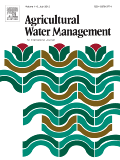
Agricultural Water Management
Empowering Professionals with Cutting-Edge Water Management StrategiesAgricultural Water Management, published by ELSEVIER, is a leading journal in the fields of agronomy, soil science, and water resource management. With an impressive impact factor reflecting its relevance and authority—ranking Q1 in multiple categories including Agronomy and Crop Science, Earth-Surface Processes, Soil Science, and Water Science and Technology—the journal serves as a critical platform for groundbreaking research and innovative practices aimed at enhancing agricultural sustainability and efficient water use. Operating since 1976, it has maintained a strong commitment to disseminating high-quality scholarly work that addresses contemporary challenges in water management related to agriculture across diverse environments. Readers can expect to find a spectrum of research articles, review papers, and case studies that not only contribute to scientific knowledge but also inform policy and practice for professionals in the field. While not open access, the journal remains a pivotal resource for researchers, practitioners, and students keen to advance their understanding of agricultural water issues and their implications for the global ecosystem.